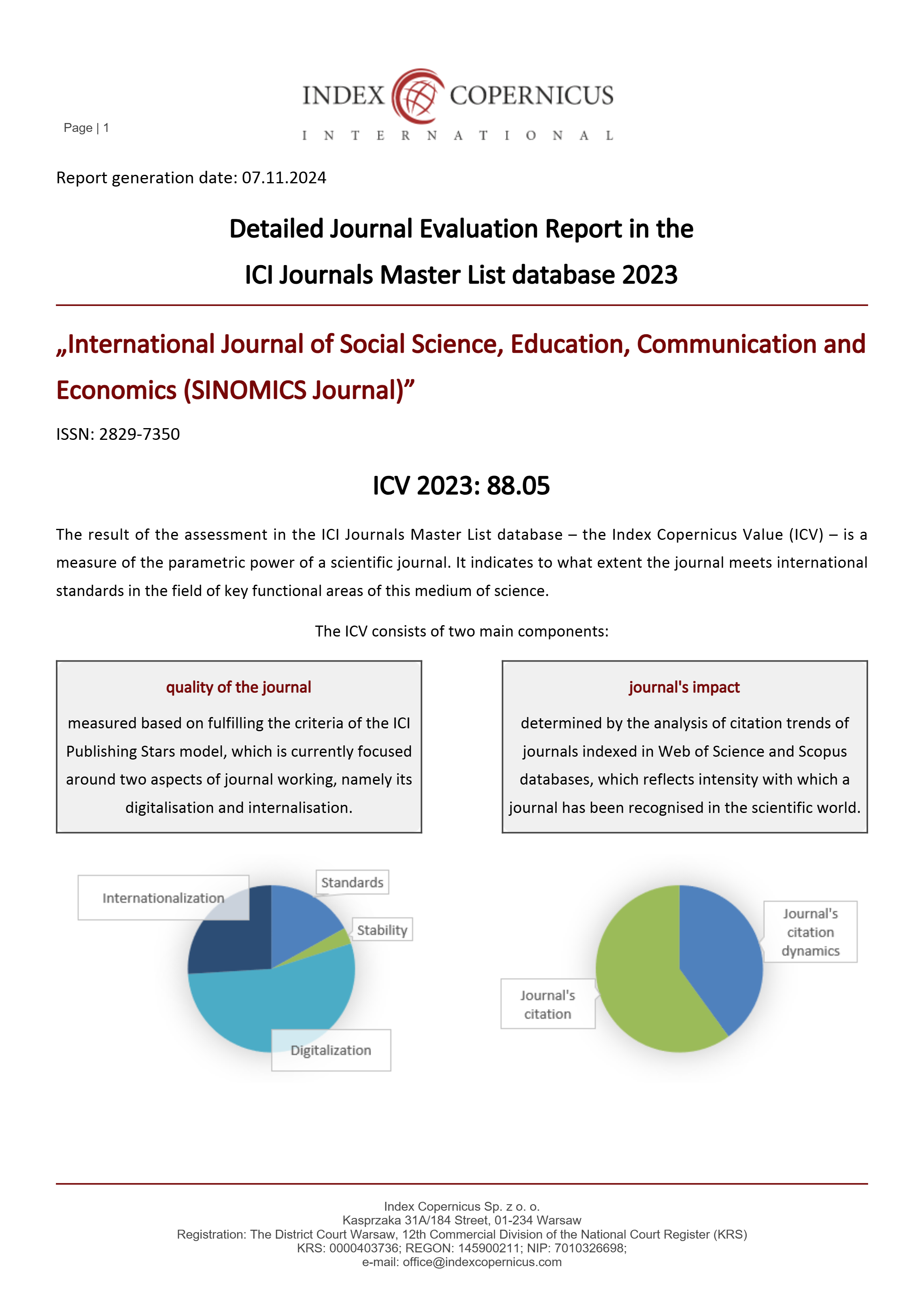Exploring Sentimen Analysis Using Machine Learning: A Case Study on Partai Demokrasi Indonesia Perjuangan (PDIP) in the 2024 General Election
Main Article Content
Fandi Kurniawan
Qois Al Qorni
General elections have an important role in democratic systems in all countries. In this context, sentiment analysis plays an important role in revealing the public's views on political parties. This study analyzes sentiment towards the Partai Demokrasi Indonesia Perjuangan (PDIP) in the 2024 General Election using the Naive Bayes algorithm. This method classifies social media content related to PDIP into positive (support) or negative (criticism) categories. The analysis results show 100% precision in identifying positive sentiment, but recall is only 97.11%, indicating that some positive sentiment was missed. For negative sentiment, the precision was 94.33% with a recall of 100%, indicating the ability to recognize negative sentiment but little negative prediction error. This study provides an in-depth understanding of the PDIP's perception in the 2024 General Election, supports better political decision making and provides insight to the PDIP in understanding the public's views.
Buntoro, G. A. (2017). Analisis Sentimen Calon Gubernur DKI Jakarta 2017 Di Twitter. INTEGER: Journal of Information Technology, 2(1).
Deolika, A., Kusrini, K., & Luthfi, E. T. (2019). Analisis Pembobotan Kata Pada Klasifikasi Text Mining. (JurTI) Jurnal Teknologi Informasi, 3(2), 179-184.
Dergiades, T. (2012). Do investors’ sentiment dynamics affect stock returns? Evidence from the US economy. Economics Letters, 116(3), 404–407. doi:10.1016/j.econlet.2012.04.018
Geraldy, G. (2019). Ideologi dan Partai Politik: Menakar Ideologi Politik Marhaenisme di PDIP, Sosialisme Demokrasi di PSI dan Islam Fundamentalisme di PKS. Ideology and Political Parties: Measuring the Political Ideology of Marhaenism in PDIP, Democratic Socialism in PSI and Islamic Fundamentalism in PKS..
Go, A., Huang, L., & Bhayani, R. (2009). Twitter Sentiment Analysis. Final Project Report, Stanford University, Department of Computer Science.
Han, J., & Kamber, M. (2006). Classification and prediction. Data mining: Concepts and techniques, 2006, 347-50.
Harimurti, F. A., & Riksakomara, E. (2017). Klasifikasi Penerimaan Beasiswa Menggunakan Metode Naïve Bayes Classifier (Studi Kasus Universitas Trunojoyo Madura) (Doctoral dissertation, Doctoral dissertation, Institut Teknologi Sepuluh Nopember).
Kao, A., & Poteet, S. (2005). Text mining and natural language processing: introduction for the special issue. ACM SIGKDD Explorations Newsletter, 7(1), 1-2.
Kontopoulos, E., Berberidis, C., Dergiades, T., & Bassiliades, N. (2013). Ontology-based sentiment analysis of twitter posts. Expert Systems with Applications, 40(10), 4065–4074. doi:10.1016/j.eswa.2013.01.001
Liu, Y., Huang, X., An, A., & Yu, X. (2007). ARSA: A SentimentAware Model for Predicting Sales Performance Using Blogs. In Proceedings of the 30th annual international ACM SIGIR conference on Research and development in information retrieval - SIGIR ’07 (p. 607). New York, New York, USA: ACM Press. doi:10.1145/1277741.1277845
Marian Radke Yarrow, John A. Clausen and Paul R. Robbins (2010). The Social Meaning of Mental Illness. Journal of Social Issues. Volume 11, Issue 4, pages 33–48, Fall 1955.
Pamungkas, S. (2009). Perihal pemilu. Laboratorium Jurusan Ilmu Pemerintahan dan Jurusan Ilmu Pemerintahan, Universitas Gadjah Mada.
Park, S., Ko, M., Kim, J., Liu, Y., & Song, J. (2011). The Politics of Comments: Predicting Political orientation of News Stories with Commenters ’ Sentiment Patterns.
Rahman, M. F., Alamsah, D., Darmawidjadja, M. I., & Nurma, I. (2017). Klasifikasi Untuk Diagnosa Diabetes Menggunakan Metode Bayesian Regularization Neural Network (RBNN). Jurnal Informatika, 11(1), 36.










